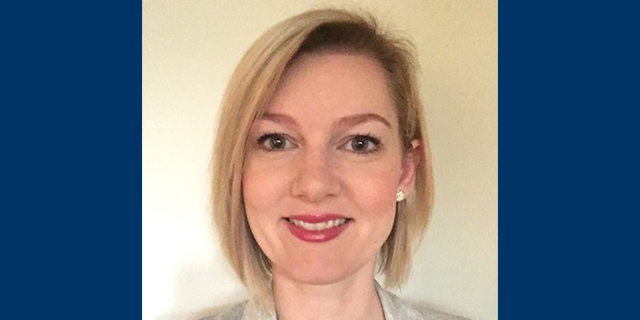Speech Pathology: Alice Crook
Alice is a Paediatric Speech Pathologist for Eastern Health in a community health clinic where she enjoys working closely with clients in need of support.

Tell me about your current role and your professional and educational background? How long have you worked in your current role?
I currently work as a Paediatric Speech Pathologist for Eastern Health in a community health clinic. I’ve been fortunate to work in this role since I graduated and have gradually taken on more complex clients and work over this time. I see pre-school aged children who have language, speech, fluency or feeding difficulties or delays. My role largely involves working with parents and carers to provide education, advice and training, so that families can implement therapy and strategies at home as well as in the clinic.
Prior to being a speech pathologist, I worked in the federal public service for about 4 years. I previously held policy and communications roles in Medicare, Centrelink and the Department of Human Services. I returned to study the Master of Speech Pathology at the University of Melbourne to pursue a career that would enable me to have more direct contact with those people who required support. I was drawn to Speech Pathology because of my love of language and the importance communication has in our social relationships. As a student, I volunteered as a representative to Speech Pathology Australia’s (SPA) Victorian Branch. I’ve continued to volunteer ever since and I am currently the Advocacy Coordinator for the Victorian Branch of SPA and have received an "Early Career Award” for my contributions.
How did you go about finding your job? What techniques, websites, contacts, networks did you utilise to get your job?
I used job-searching websites such as SEEK and also signed onto all the major health network career websites. The jobs page on the SPA website was also a useful resource.
I made a few cold-calls to organisations where I would have liked to work and while these calls never eventuated into work positions, they boosted my confidence in speaking with employers.
I certainly utilised some of the networks I already had, such as references from University Placements and from my student-volunteering role at SPA.
What do you like most about working at your organisation?
My colleagues and the opportunities I have for supervision and peer-learning. Working with others who are equally passionate and full of knowledge makes coming to work a really enjoyable experience.
What is one thing you wish you knew before you started your professional career?
I knew that speech pathology was a small profession in terms of numbers, but I don’t think I realised how frequently I would bump into people that I knew. It has been really nice to see familiar faces at workshops or meetings and realise that I really do know a wide network of people.
What is one piece of advice you would give to students who are graduating soon and are looking to work in Speech Pathology?
Hang in there! It is no easy task applying for jobs when you are just starting out and at times it can feel daunting, especially when you graduate full of enthusiasm. Finding the right work fit, can take some time, and it is hard not to feel dismayed, especially if you’ve not yet had an interview or call back. While you are looking for work, take the time to re-read articles, attend professional development or workshops, or volunteer. These extra things can add to your resume as you continue to look for work and can further link you in with new professional networks. I decided to pursue publishing my master’s thesis, while I was looking for work. While it took many, many more months to finally have my article published in a peer reviewed journal, I probably would not have taken the opportunity to pursue publication while I was employed full time, so having some down time, while looking for work, turned out to be an advantage for me.